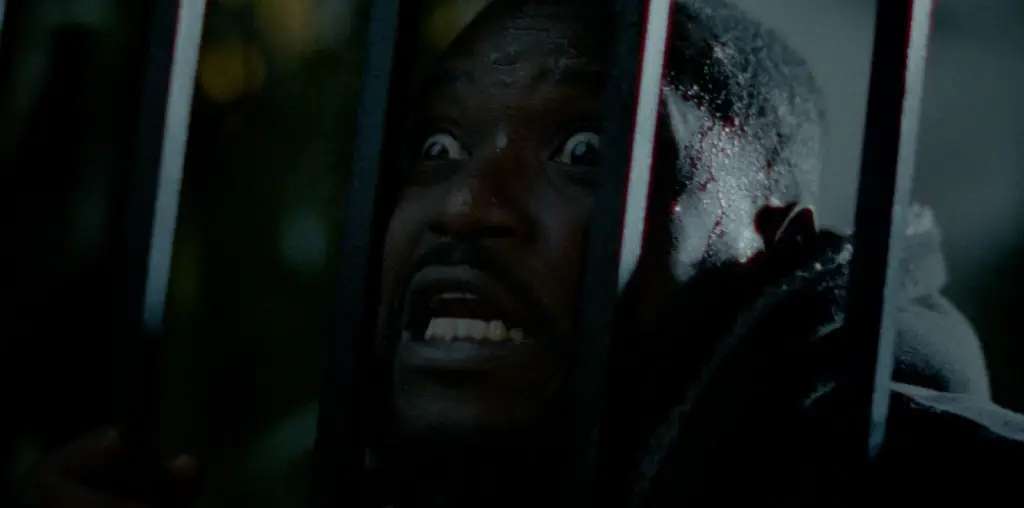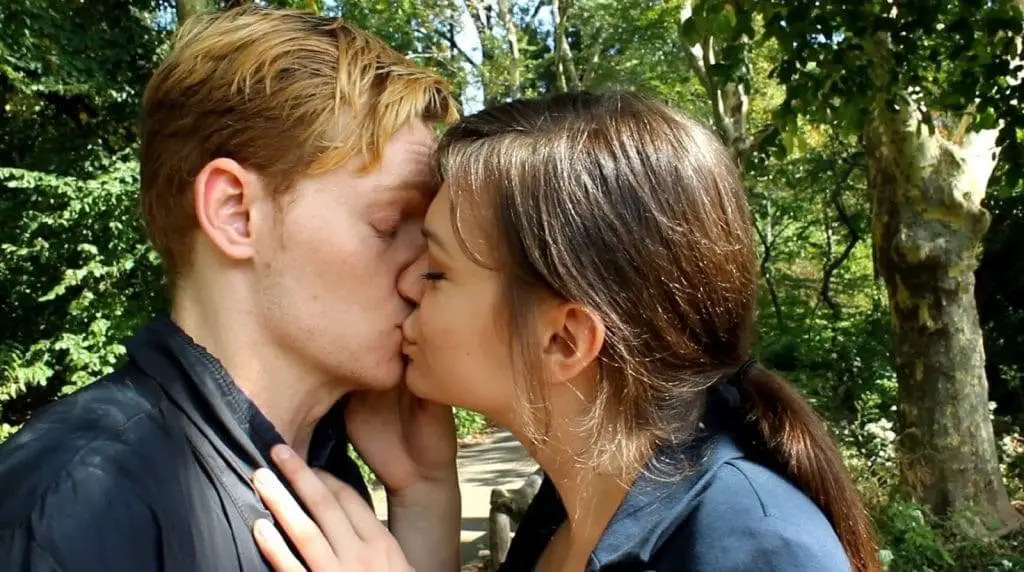
After the second annual Microcinefest in Baltimore, Skizz Cyzyk did what most any program director does– he went to a party. There he stood worried in the proverbial after-hour’s warehouse loft , complete with the gallery and beat-up elevator.
“I only hope we made enough money to send the films back,” he said. “Postage is expensive and those things are bulky and they’re heavy.”
Such is the tragic beauty and conundrum of pulling off a successful
underground film festival. You want to be successful without selling out.
You want to draw crowds but you don’t want to alienating the hardcore who’s really understand the thrill of grabbing the camera for yourself.
“This is more about having a good time, I don’t mind if people show up drunk, cheer, yell and holler during some of the screenings,” said Cyzyk,
who use to show films in what was once a funeral home. “That’s the whole
party atmosphere. It’s almost I want it to be more of a party than a film
festival.”
If the DIY punk ethic’s the measure, then Microcinefest came out of the
second year unscathed. There was under $100 video award category, “Mother
& Son, directed by Matthew Silver and best film for the under $1000
“Don’t Run Johnny directed by Tom E. Brown.
The hit of the festival seem to be “Surrender Dorothy,” by Kevin DiNovis which by now is no secret. The big name of the Festival was Cannibal: The
Musical by Trey Parker of South Park fame. Parker’s film turned about to be a stumper for Cyzyk, who would have bet that Cannibal would fill a house.
Then again, this is Baltimore. Just talk to the folks in the underground
music scene to get a feel how tough this town can be. As one person put it, Baltimore has a way of letting the art scene wilt. “Not to put down Baltimore, but people follow the path of least resistance, culturally,” said Carol Bennett, who was a judge until he missed a crucial meeting.
Pulling off an underground festival without being accused as a sellout isn’t easy especially when everyone’s a critic. His judges put him in a precarious spot when they award best feature to “Bury the Evidence,” directed by J. Greg DeFelice, which happens to be the most expensive production in the festival.
“Giving the biggest budget film in the festival (Bury The Evidence) the
big award sort of sends the wrong message, but who am I to argue with the
judges decisions,” he said. Even at the wrap-up warehouse party, Cyzyk was literally surrounded by extremes. Basking in the shadows was Todd E. Freeman who made Reynard The Fox, a movie about hell. He was thrilled that people walked out of the theater. “There are the smart people because the can [walk out],” intoned Paul Edwards, who was in the flick.
Freeman is from the school that all films are not supposed to be entertaining and he truly, “wanted to scare the s**t out of people.” “I think of my film as a black comedy that is so dark that it’s not funny,” said Freeman. “How black can a black comedy be until it’s not funny anymore.”
Siting behind him was Chris Skokowski, who with his crew took a communal
approach to their $5,000 Buster Keaton meets nuclear Armageddon flick.
As a result the movie’s meaning depends on which director you talk to.
Skokowski, who is constantly referring to energy as in “Baltimore has
good energy” feels once the movie is shown, it belongs to the audiences. “We came up with the idea during a group performance piece,” he said. All this diversity was rooted in the festival celebration of “big ambition, little budget.”
For five days, 120 films and video flashed on the screens at upstairs at the Orpheum Theatre in Fells Point, Baltimore’s most bar laden waterfront
neighborhood. Five blocks away was the second venue, a make shift warehouse was converted into a theater. There people sat on metal a*s killing chairs
squirming to read subtitles while gorging on free popcorn.
But the warehouse only emphasized the homegrown credo that produced some
of these films that were made for as little as 20 bucks. The short flicks
seemed to be laces with that subliminal candy stand message tempting the
audience to get off their a*s and make their own film.
“There were some awful bad ones in this,” said Bennett. “But at their worst, it encourages you to do something on your own.” “That’s what this festival will do, it will take away your excuses,” said Dave Thomas, who made Least Dangerous Game, a 12 minute short based on the game “Assassin.” When organizing the festival, Cyzyk was looking more for spirit then quality; more fun than art. He rejected the gangsta schlock that was done by college boys with rap on the brain.
After days of viewing home-made films the message finally gets through.
Suddenly filmmaking that seems an art form for the wealthy, is assessable.
“There’s one of these festivals in just about every city these days.
This happens to be Baltimore’s version of it which is a good thing because
now my $50 film can be shown in just about every city in the country.”
Here are the other winners: ^ Best Short “Fast Food,” directed by Jonathan Fahn ^ Best Documentary “Tatooine or Bust,” directed by Jason Wishnow ^ Best Animation, “Godzilla vs. Disco Lando,” directed by Evan Mather ^ Best Experimental, Yours,” directed by Jeff Scher ^ The Judges Special Recognition Way Cool Film Ward, “Surrender Dorothy” directed by Kevin DiNovis ^ The Judges Special Recognition Way Cool Video Award, aka, “The
Conversation” directed by Bill Hardy. ^ The New Discovery Award went to Matthew Fulchiron for “Quarter Life Crisis,” ^ “The Encounter” and “Chocolate Milk” (co-directed with Randy Bobbitt & Jen Gouvea) ^ The Audience Choice Award for Best Short, a tie — “Mother & Son,” directed
by Matthew Silver and Troops,” directed by Kevin Rubio ^

